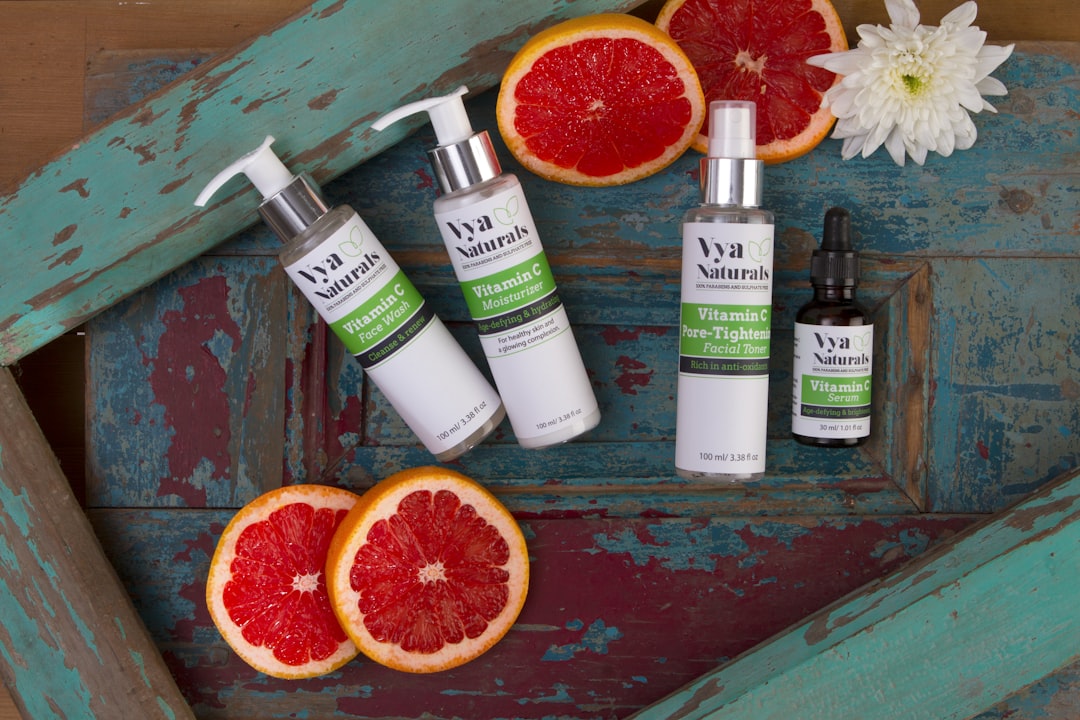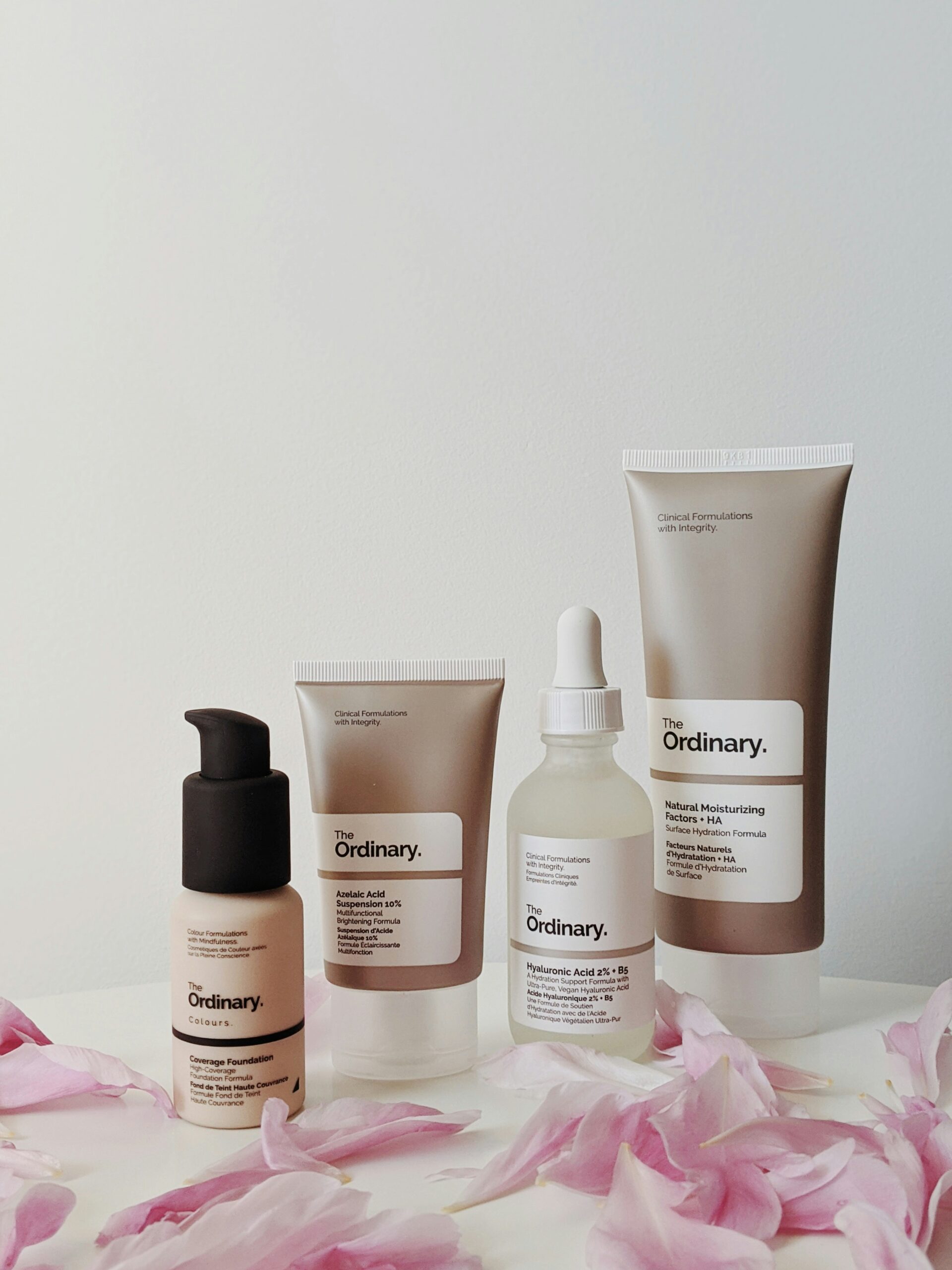Vitamin C is a powerhouse ingredient when it comes to skincare, offering a wide range of benefits for your skin. Firstly, it is a potent antioxidant that helps to protect the skin from free radical damage caused by environmental factors such as pollution and UV radiation. This can help to prevent premature ageing and reduce the appearance of fine lines and wrinkles. Additionally, vitamin C is known for its ability to brighten the skin and even out skin tone, making it a popular choice for those looking to achieve a more radiant complexion. It also plays a key role in the production of collagen, a protein that helps to keep the skin firm and youthful-looking. This means that using vitamin C in your skincare routine can help to improve the overall texture and elasticity of your skin.
Furthermore, vitamin C has anti-inflammatory properties, making it an excellent choice for those with sensitive or acne-prone skin. It can help to calm redness and reduce the appearance of blemishes, while also promoting faster healing of any existing breakouts. In addition, vitamin C can help to protect the skin from sun damage, although it should not be used as a replacement for sunscreen. Overall, incorporating vitamin C into your skincare routine can help to improve the overall health and appearance of your skin, making it a valuable addition to any beauty regimen.
Summary
- Vitamin C can help brighten and even out skin tone, reduce the appearance of fine lines and wrinkles, and protect against environmental damage.
- Recent studies have shown that vitamin C can also help with collagen production and skin hydration, making it a powerful anti-ageing ingredient.
- Incorporate vitamin C into your skincare routine by using a serum or moisturiser with a concentration of 10-20% and applying it in the morning before sunscreen.
- Look for vitamin C products with stable and effective formulations, such as L-ascorbic acid, tetrahexyldecyl ascorbate, or ascorbyl glucoside.
- Different skin types and concerns can benefit from vitamin C, but it’s important to choose the right formulation and concentration for your specific needs.
The Latest Research on Vitamin C in Skincare
Recent research has continued to support the numerous benefits of vitamin C for the skin, while also uncovering new potential uses for this powerful ingredient. Studies have shown that vitamin C can help to protect the skin from the harmful effects of infrared radiation, in addition to its well-known ability to defend against UV damage. This makes it an important ingredient for maintaining healthy skin, particularly in areas with high levels of sun exposure. Furthermore, research has indicated that vitamin C may also have a role to play in preventing and treating hyperpigmentation, making it a valuable tool for those looking to address issues such as dark spots and uneven skin tone.
In addition, advancements in skincare technology have led to the development of new forms of vitamin C that are more stable and better able to penetrate the skin. This has expanded the range of products available to consumers, allowing for more effective and targeted use of this beneficial ingredient. Furthermore, research has also highlighted the potential for vitamin C to work synergistically with other skincare ingredients, such as vitamin E and ferulic acid, to provide even greater benefits for the skin. As our understanding of vitamin C continues to evolve, it is likely that we will see even more innovative uses for this ingredient in the future.
How to Incorporate Vitamin C into Your Skincare Routine
Incorporating vitamin C into your skincare routine is relatively straightforward, with a wide range of products available to suit different preferences and needs. One popular option is a vitamin C serum, which is typically applied after cleansing and toning the skin, but before moisturising. This allows the vitamin C to be absorbed directly into the skin, where it can get to work on providing its numerous benefits. Another option is a vitamin C moisturiser, which can be used as part of your daily skincare routine to provide hydration and protection while also delivering the benefits of vitamin Additionally, there are also vitamin C-infused masks and treatments that can be used on a weekly basis to give your skin an extra boost of this powerful ingredient.
It’s important to note that vitamin C can be unstable and prone to degradation when exposed to light and air, so it’s important to store your products correctly and use them within their recommended shelf life. Additionally, it’s best to start with a lower concentration of vitamin C and gradually increase as your skin becomes accustomed to it, as higher concentrations can potentially cause irritation for some individuals. Finally, it’s important to use sunscreen alongside your vitamin C products, as they can help to enhance the protection offered by your sunscreen and provide additional defence against UV damage.
The Best Vitamin C Products on the Market in 2024
In 2024, there are numerous vitamin C products on the market that cater to different preferences and skincare needs. One popular option is the Drunk Elephant C-Firma Day Serum, which contains a potent blend of vitamin C, ferulic acid, and pumpkin ferment extract to brighten and firm the skin. Another highly-rated product is the SkinCeuticals C E Ferulic Serum, which combines vitamin C with vitamin E and ferulic acid for enhanced antioxidant protection. For those looking for a more affordable option, The Ordinary Vitamin C Suspension 23% + HA Spheres 2% offers a high concentration of vitamin C at a budget-friendly price.
In addition to serums, there are also vitamin C-infused moisturisers such as the Ole Henriksen Truth C-Rush Brightening Gel Crème, which provides hydration and brightening benefits in one product. For those who prefer a more targeted treatment, the Sunday Riley C.E.O. Rapid Flash Brightening Serum is a popular choice for addressing hyperpigmentation and dullness. Finally, there are also vitamin C masks such as the Fresh Vitamin Nectar Vibrancy-Boosting Face Mask, which provides a quick and effective way to give your skin a boost of radiance. With so many options available, there is a vitamin C product to suit every skincare routine.
Vitamin C for Different Skin Types and Concerns
Vitamin C is a versatile ingredient that can benefit a wide range of skin types and concerns. For those with dry or dehydrated skin, using a vitamin C-infused moisturiser can help to provide much-needed hydration while also brightening and protecting the skin. Individuals with oily or acne-prone skin can benefit from using a lightweight vitamin C serum to help reduce inflammation and promote healing, while also providing antioxidant protection against environmental stressors. Those with sensitive skin may benefit from using a lower concentration of vitamin C or opting for a product that also contains soothing ingredients to minimise the risk of irritation.
In terms of specific concerns, vitamin C can be particularly beneficial for addressing hyperpigmentation and uneven skin tone. Using a targeted treatment such as a vitamin C serum or mask can help to fade dark spots and brighten the complexion over time. Additionally, vitamin C can also help to improve the overall texture and firmness of the skin, making it a valuable ingredient for those looking to combat signs of ageing such as fine lines and wrinkles. With its wide-ranging benefits, vitamin C is a valuable addition to any skincare routine, regardless of your specific skin type or concerns.
The Future of Vitamin C in Skincare
As our understanding of skincare ingredients continues to evolve, it’s likely that we will see even more innovative uses for vitamin C in the future. Advances in technology may lead to the development of new forms of vitamin C that are even more stable and effective at penetrating the skin. This could open up new possibilities for incorporating vitamin C into skincare products in ways that were not previously possible. Additionally, ongoing research may uncover new potential benefits of vitamin C for the skin, leading to its use in addressing an even wider range of concerns.
Furthermore, as consumer demand for natural and sustainable skincare options continues to grow, we may see an increased focus on sourcing vitamin C from natural sources such as fruits and botanical extracts. This could lead to the development of more eco-friendly and ethically sourced vitamin C products that appeal to environmentally conscious consumers. Overall, the future looks bright for vitamin C in skincare, with plenty of potential for continued innovation and advancement in this area.
Expert Tips for Maximising the Benefits of Vitamin C
To maximise the benefits of vitamin C in your skincare routine, there are several expert tips to keep in mind. Firstly, it’s important to use your vitamin C products consistently as part of your daily routine in order to see optimal results. This means applying them in the morning before sunscreen and makeup to ensure that your skin receives continuous protection throughout the day. Additionally, it’s important to store your vitamin C products correctly in order to prevent degradation of the ingredient. This means keeping them away from direct sunlight and tightly sealed to minimise exposure to air.
Furthermore, it’s important not to use vitamin C products alongside exfoliating acids such as AHAs or BHAs, as this can increase the risk of irritation for some individuals. Instead, it’s best to use them at different times of day or on alternate days in order to avoid overloading your skin with active ingredients. Finally, it’s important to be patient when using vitamin C products, as it can take time to see visible results. Consistent use over time is key to achieving the full benefits of this powerful ingredient. By following these expert tips, you can make the most of incorporating vitamin C into your skincare routine and enjoy all of its numerous benefits for your skin.
Discover the latest trends in skincare and active lifestyles with our comprehensive guide on the best skincare products for those leading an active life. Whether you’re hitting the gym or enjoying outdoor activities, it’s essential to protect and nourish your skin. And if you’re looking for more skincare tips, check out our article on the skin-mental health connection, exploring how taking care of your skin can positively impact your mental well-being. For a complete beard and skin care guide, head over to bestskincareproducts.eu to ensure your grooming routine is on point.
FAQs
What are the benefits of using Vitamin C in skincare?
Vitamin C is a powerful antioxidant that helps to protect the skin from environmental damage, such as pollution and UV radiation. It also helps to brighten the skin, reduce the appearance of dark spots and hyperpigmentation, and stimulate collagen production, which can help to improve the overall texture and firmness of the skin.
How should Vitamin C be incorporated into a skincare routine?
Vitamin C can be used in the form of serums, creams, or lotions, and should be applied after cleansing and toning the skin, but before moisturising. It is best to use Vitamin C in the morning, as it can help to protect the skin from environmental damage throughout the day.
Are there any potential side effects of using Vitamin C in skincare?
Some people may experience mild irritation or redness when first using Vitamin C, particularly if they have sensitive skin. It is important to start with a lower concentration of Vitamin C and gradually increase the strength as the skin becomes accustomed to it. It is also important to use sunscreen when using Vitamin C, as it can make the skin more sensitive to UV radiation.
Is Vitamin C suitable for all skin types?
Vitamin C is generally suitable for all skin types, but those with particularly sensitive skin may need to be cautious and start with a lower concentration of Vitamin C to avoid irritation. It is always best to consult with a dermatologist before incorporating any new skincare ingredient into a routine, especially for those with specific skin concerns or conditions.




